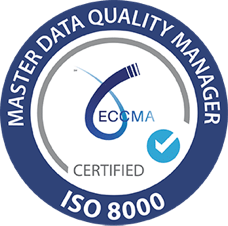
A lot of software vendors urge you to adopt their tools and start talking to your data – but almost all of them make those conversations really hard to have. Why?
Because you aren’t really talking to your data, you’re writing code.
Imagine if, instead of coding rules for your data, you could just ask for what you want:
- Which of the loans made by our finance division default most quickly?
- Is it cheaper for us to produce this product in house or use an external supplier?
- How can we reduce the number of loan applications that we refuse because of bad data?
Talking to your data should be as easy as talking to your team and writing rules for your data should not mean learning to code yet another relational database tool – and that’s why you need to be sure that your data mapping solution offers a real natural language interface.
Here are the four reasons writing your rules in natural language is superior to any other system of rule coding.
Reason 1: Nothing to Learn, You’re Ready to Go
When you write your rules in natural language there’s nothing to learn: if you can write, you can write the rule.
When you don’t need to learn to code rules for your data, you save time and money. There’s no training to go through, there’s no time to spend learning, and no calendars need to be blocked to get teams up to speed with using a new tool. Integration is faster and the time to value is accelerated.
One of the reasons that Global Data Excellence consistently delivers rapid time to value is because of its natural language capacity. When clients can write their rules without needing to go through extensive training and without learning to code, the time to value after the investment in DEMS technology is usually measured in just days or weeks. Clients will only need to think about new rules or to directly implement their rules, policies, laws..etc from existing sources.
Reason 2: Natural Language Means Speaking
Your Language
The world’s biggest companies are international and, while English might be the lingua franca of the business world, most employees will be more comfortable expressing themselves in their native tongue.
For a natural language interface to work for an international team it needs to work not just in English but in every language. A user in Paris should be able to write rules for the data in French, a user in Berlin should be able to write rules in German, and user in Tokyo should be able to write their rules in Japanese.
And the software solution should be able to understand every one of those rules natively – no additional plugin and no API connection to a third-party translation tool required.
Global Data Excellence’s DEMS solution works in every language. Users can write rules in their preferred language and users within the same company can work in different languages with no impact on the efficacy of the software.
Reason 3: Natural Language Comes
with Contextual Intelligence
Coded rules are precise, but that precision can come at a cost. The software will return the data and answers that the code demands but that light not actually be the answers that decision maker are looking for.
Natural language rules, on the other hand, can determine the context of a rule and intelligently return the answers and data that are sought. What’s more, this contextual intelligence grows more intelligent with time. Just as a search engine learns more about your search preferences, location, preferred language and interests as you make more searches, the contextual intelligence of a solution like DEMS improves and grows the more it is used.
DEMS’ contextual intelligence offers users the ability to adapt that knowledge to an environment different from the one in which it was developed. Just as humans are masters of using context to inform language in conversation, DEMS is ready to contextualize the natural language rules that users bring to the software and ensure the data requested is returned every time.
Reason 4: Forget About Investing
in Algorithm Training
An alternative to coding rules for company data is to embrace an artificial intelligence or machine learning solution. A machine learning approach could help a company to establish trends, extract insights, and support decision making – but there’s a catch Machine learning algorithms need to be trained on the data and this not only takes mountains of data, but it also takes significant time and comes at a non-trivial cost.
Machine learning algorithms must be trained on thousands or even tens of thousands of data points in every single class it might encounter. Short of this training, the algorithm will return only sub-standard insights that cannot be relied on to support the important decisions that every company must make.
A software solution that can understand natural language rules, on the other hand, does not need to be trained on the data. Global Data Excellence’s DEMS, for example, need only be connected to existing databases and set loose. There is no training time, there is no algorithm to feed, and there is no cost or time wasted.
Conclusion
The advantages of writing your rules in natural language instead of coding those rules or relying on training a machine learning algorithm are clear.
Your teams are up to speed faster because there is no new coding language to learn and no training on querying the data to complete. International teams can adopt tools like DEMS without worrying about the language skills of their teams – French teams can write rules in French, American teams can write rules in English, and indeed there are no limits to how many different languages can be used within a single deployment of the tool.
Unlike if/then coded rules, natural language rules come with contextual intelligence to help deliver the answers and data that are being sought. With the capacity to understand the true meaning of a request instead of only its literal meaning, DEMS is capable of returning the right results even while it continues to learn what a user is looking for.
Finally, unlike a solution that relies on training machine learning algorithms to extract insights from databases, a tool like DEMS can extract those same insights without the costs, time, and data demands that those machine learning models require. Once again, you’re up and running faster and more efficiently with a natural language solution. DEMS is the first AI platform able to do that.
In short, if you can ask a question then you can write a rule, and you can start extracting value from your data today with DEMS immediately – read how you can get started today !
Global Data Excellence News
Dr. Walid el Abed at S3C 2025: Data Sovereignty, Ethical AI, and Digital Governance
We are pleased to share the presentation by Dr. Walid el Abed, Founder and CEO of Global Data Excellence, at the S3C 2025 Summit – a major event...
Global Data Excellence and The Higher Committee of Human Fraternity Unite to Drive Ethical AI and Human-Centered Technology for Global Good
For immediate release Geneva, Switzerland – May 23, 2025 – Global Data Excellence (GDE) and The Higher Committee of Human Fraternity have entered...
GLOBAL DATA EXCELLENCE CELEBRATES DATA INDEPENDENCE DAY WITH THE LAUNCH OF DEMS FOR ALL
Press Release: For Immediate Release Geneva, Switzerland – September 18, 2024 – In a historic announcement, following Dr. Walid el Abed's...

Global Data Excellence (GDE)
Route de la Galaise 34
CH - 1228 Plan-les-Ouates


© 2024 Global Data Excellence | All Rights reserved | DEMS Support Platform | Website realised by Swiss House of Brands




Recent Comments